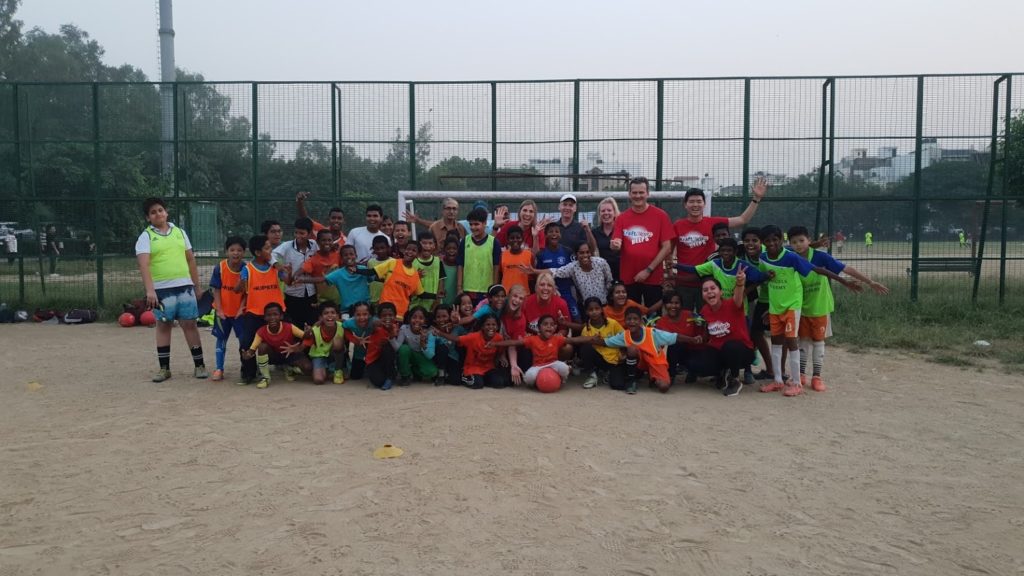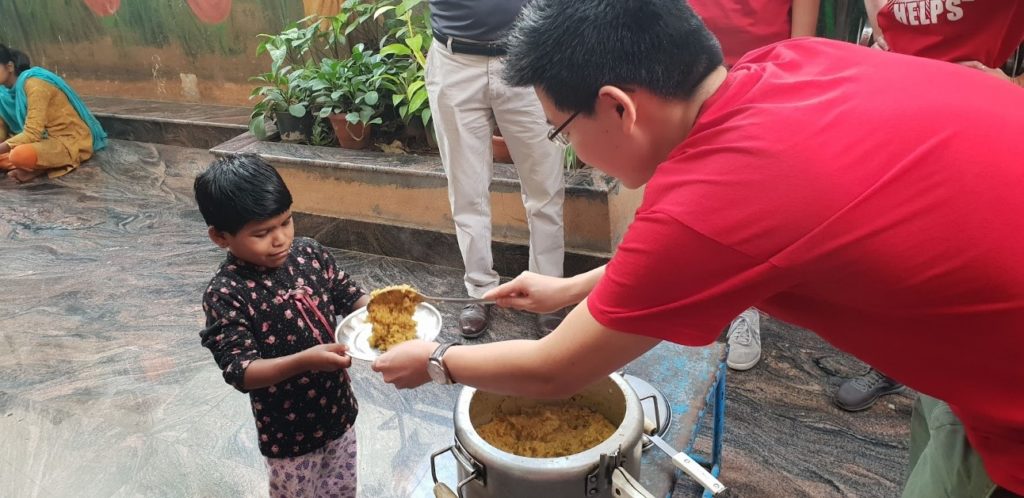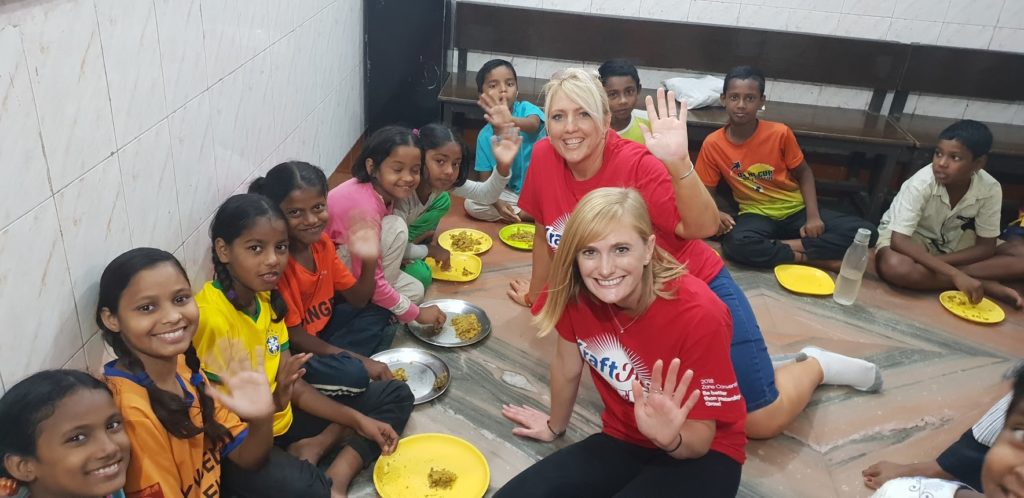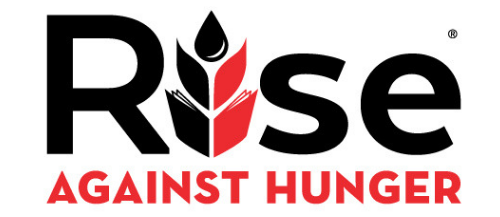A Q&A from Our Friends at Kraft Heinz

Since 2013, Rise Against Hunger and Kraft Heinz have partnered together to fight global malnutrition and food insecurity. Last year, for the first time, seven “Kraft Heinz Meal Ambassadors,” and several Kraft Heinz Foundation Board members joined us on vision trips to both India and Haiti to get a firsthand look at the impact our meals are having on real people’s lives.
Caroline reflected on the experience in a recent Kraft Heinz global employee communication; please see below for an excerpt!

Q: Why was it so important for Kraft Heinz to take Vision Trips with Rise Against Hunger?
A: The first thing nearly every Meal Ambassador said to me after our first partner visit in-country was, “Wow, this really puts the meal packaging events from back home into perspective.” And it’s so true. The meals are so much more than rice, soy and vegetables scooped into a meal bag when you see the impact they have on the lives of those who rely so heavily on them. Kraft Heinz employees have been packing meals at local events for many years, and last year, we had a thought: “What happens after we pack the meals? And what if we allowed our employees to follow that meal’s journey?” Thus, the first-ever Kraft Heinz Meal Ambassador program was born.

Q: How is the Kraft Heinz partnership with Rise Against Hunger helping to break cycles of poverty?
A: Food insecurity is a chronic issue in Haiti, the poorest country in the Western Hemisphere, and the second-most densely populated. Although agriculture is an important sector in the overall economy, Haiti does not produce enough food crops and livestock to feed its people. That’s why Rise Against Hunger ““ in partnership with other organizations, including Kraft Heinz ““ is implementing a sustainable agricultural development program focused on high-value crops and economic growth opportunities. One fish farming example we saw in Haiti was a tilapia pond pilot program at one of the schools. While the initial two-year phase of this project will result in increased food production and consumption, the hope is that additional investments in future years would enable farmers to add value to their crops, participate more fully in the value chain, and strengthen the business practice of their farming enterprises.

Q: On a personal level, what did you find to be most impactful about these two trips?
A: We often call the micronutrient packet the “heart of the meal.” That statement has never rung more true for me than it did in India, when we visited a local school for blind and deaf children. The center’s director introduced us to a sweet, healthy little girl who was flourishing in this environment, in part due to the micronutrients she received from Kraft Heinz. As the director explained, when she came to the center years earlier, she was severely malnourished and underweight. She’s been eating our meals three times weekly since then, and when we met her in October, she was thriving.

